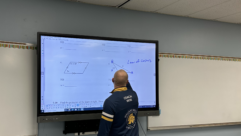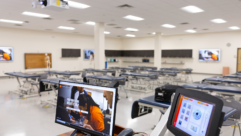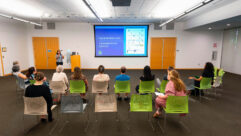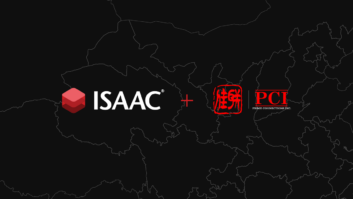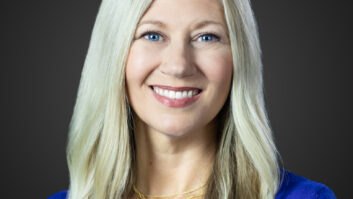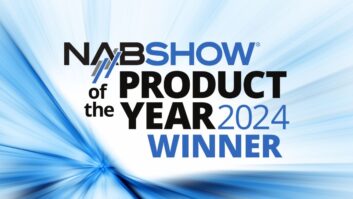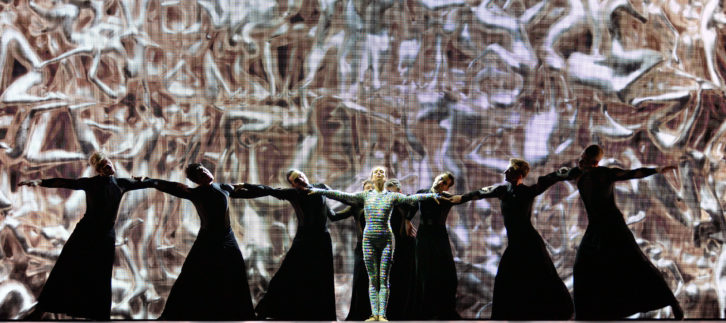
Sleeping Beauty Dreams is a revolutionary fusion of contemporary dance, real-time digital avatar technology and hypnotic electronic music. Sound and movement achieved stunning cohesion as NOISIA’s Thijs de Vlieger’s futuristic score was presented in L-ISA Immersive Hyperreal Sound technology, as the celebrated dancer Diana Vishneva was tracked in real time with BlackTrax motion tracking.
The avant-garde rendition of the classic tale of Sleeping Beauty is a revolutionary theatrical production. Conceived by Miami-based Magic Reality Group (MRG), Sleeping Beauty Dreams (SBD) combines visual art, contemporary dance and cutting-edge avatar-mapping projection, set to an immersive sound of harsh and, at times, darkly ambient electronic music, to create a unique multi-dimensional scenic experience.
To achieve this, the creative team used L-ISA partner BlackTrax real-time motion tracking throughout the entire production of SBD. The production utilized the application in innovative and profound ways by perfectly synchronizing lighting and audio elements, giving precise responses from each and offering complete coverage to the stage and freedom of movement for Vishneva
Additional to its role in tracking for lighting, BlackTrax also integrated with L-Acoustics L-ISA; positional data from BlackTrax connected visual and audio imaging to deliver a fully immerse experience to the audience.
The team generated live content using a Perception Neuron system to track Vishneva’s movements via 17 inertial sensors attached to the dancer’s costume. The system mapped her movements to giant digital avatars gliding across a large screen, replicating the prima ballerina’s movements on the stage floor. The Fuse team integrated both technologies. The show’s focus centered entirely around Vishneva, who was the only dancer wearing a motion costume, even during one of the most beautiful moments in the production where she dances with her Prince. MRG chose Euroshow as sound provider for the Russian leg of the tour and Clair Global in the US. One of Russia’s largest and most established rental companies. St. Petersburg-based Euroshow worked on deploying L-ISA technology across nine shows in eight Russian cities last fall. Andrey Akhromeev, a freelance engineer, designed and tuned the sound system according to L-ISA design rules and adapting it to the different venues. He also programmed the playback system, which was running L-ISA control plug-ins.
Akhromeev joined the tour during the early period of the Russian leg, about a month before rehearsals in St. Petersburg. “The desire to use L-ISA technology was there from the very beginning, with the previous production manager introducing the system to the creative team and assistance being provided by Dave Brooks and Carlos Mosquera of L-Acoustics,” he says.
To complement De Vlieger’s atmospheric, industrial soundscape, Akhromeev chose to deploy a fully immersive sound configuration, with a frontal system that was enhanced by surround sources positioned along the side walls. With the show predominantly playing in theatres, finding rigging points in the proscenium and designing a system that could be flown behind the proscenium line was a challenge for the team. Akhromeev leaned heavily on L-Acoustics Soundvision to model the venues, design and test the configuration. For this, he worked closely with Euroshow’s system tech, Arthur Vitkalov, who helped to render the venue sites. They received additional support from Sherif El Barbari, Director of L-ISA Labs, for the initial system design stage during the rehearsals and the first shows.
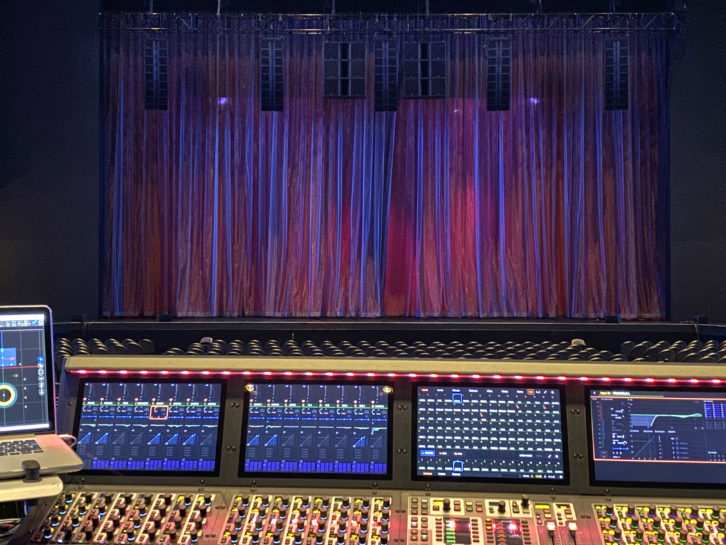 The final system comprised five hangs of Kara spread across the front of the stage, with between eight and 14 elements per hang, depending on the venue configuration. Six to eight KS28 subs were flown beside the center Kara hang.
The final system comprised five hangs of Kara spread across the front of the stage, with between eight and 14 elements per hang, depending on the venue configuration. Six to eight KS28 subs were flown beside the center Kara hang.
“Placing subs beside the center hang has become standard in theatre-type venues due to limited options for rigging points,” explains Akhromeev. “Normally, there are no rigging points capable of bearing heavy weights in front of the proscenium. Because of that, the team had to fly the main truss, which was holding the whole frontal system just behind the red line (fire curtain). At the same time, we had to keep in mind lighting and video fixtures that also required space, so they could reach the right points on stage. For that reason, flying subs beside the center hang was the most viable option for us.”
Between 10 and 18 X8 cabinets were used for the surround system, located along the walls on speaker stands, with the additional option of hanging them using special brackets. The system was driven by 24 LA12X amplified controllers and four P1 system processors, with the M1 measurement suite helping to speed up the system tuning process by communicating directly with the LA12X during calibration procedures, eliminating the need for external software and hardware.
While the setup process of L-ISA was similar to that of a standard PA, the mixing process was a revelation for the team.
“Tuning was not significantly different,” continues Akhromeev. “Most importantly, we could achieve the right design in L-Acoustics 3D Soundvision software with the L-ISA module, which offered the opportunity to evaluate the L-ISA zones and all the dead spots. Mixing was completely different though. It wasn’t really mixing anymore, as we were playing with objects in space. It required more precision during the mix because of the greater resolution of the system. This gave us additional space for each object, which led to a better, more distinct and natural sounding show.”
“We heard sound in these familiar venues in an entirely new way,” confirms Anton Rastorguev, Head of Sound at Euroshow. He also believes that the system made a lasting impression on the show’s audiences.
“The main impression that I got from them was ‘the sense of involvement’ and ‘being enveloped by the music and The Princess’s dreams’,” he says. “Andrey’s mix was incredible and encapsulated the essence of L-ISA. This was a big step forward for us.”


